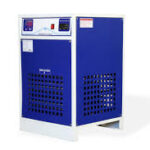Air Cooled Chillers
Air-cooled chillers work by using airflow to expel heat from the coolant or refrigerant. Unlike water-cooled chillers, which require a cooling tower, they are ideal for areas with water scarcity.
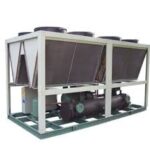
Water Cooled Chillers
Water-cooled chillers function by using water as a heat transfer medium to cool the refrigerant. These systems are essential for large-scale commercial and industrial cooling needs.
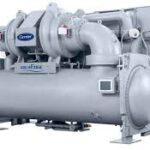
Screw Chillers
Screw chillers are designed for large-scale cooling in industrial and HVAC applications. They feature screw compressors that ensure efficient operation. These chillers offer superior energy efficiency and reliability.
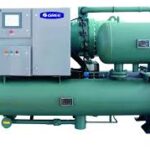
Variable Speed Chillers
Variable speed chillers use VFD-driven compressors to regulate motor speed according to cooling needs. This ensures efficient performance and lowers operating costs. They are widely used in energy-conscious applications.
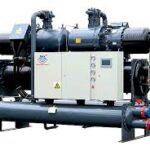
Oil Chiller
Oil chillers are designed to cool and stabilize lubricating oil temperatures. They play a vital role in preventing thermal damage in machinery. This ensures smooth and reliable industrial operations.
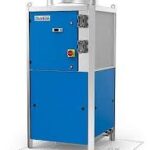
Hydraulic Oil Chiller
Hydraulic oil chillers help control hydraulic fluid temperature in industrial applications. They prevent overheating, ensuring reliable operation. This extends the life of hydraulic components.
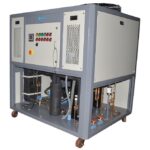
Online Chiller
Online chillers provide industrial and commercial cooling with remote access features. Their internet-enabled control systems allow real-time monitoring. This enhances efficiency and maintenance convenience.
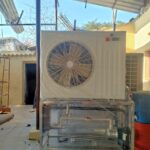
Glycol Chiller
Glycol chillers regulate temperature-sensitive processes by circulating a glycol-water mixture. They are widely used in food processing, wineries, and breweries. These chillers ensure consistent cooling performance.
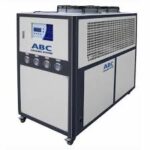
Spindle Chiller
Spindle chillers are designed to cool CNC machine spindles, preventing overheating. They help maintain precision and smooth operation. This ensures consistent machining performance.
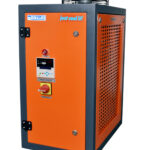
Refrigerated Air Dryer
Refrigerated air dryers provide moisture control by cooling compressed air to remove water. They enhance the performance of air-powered systems. Dry air prevents corrosion and contamination.
